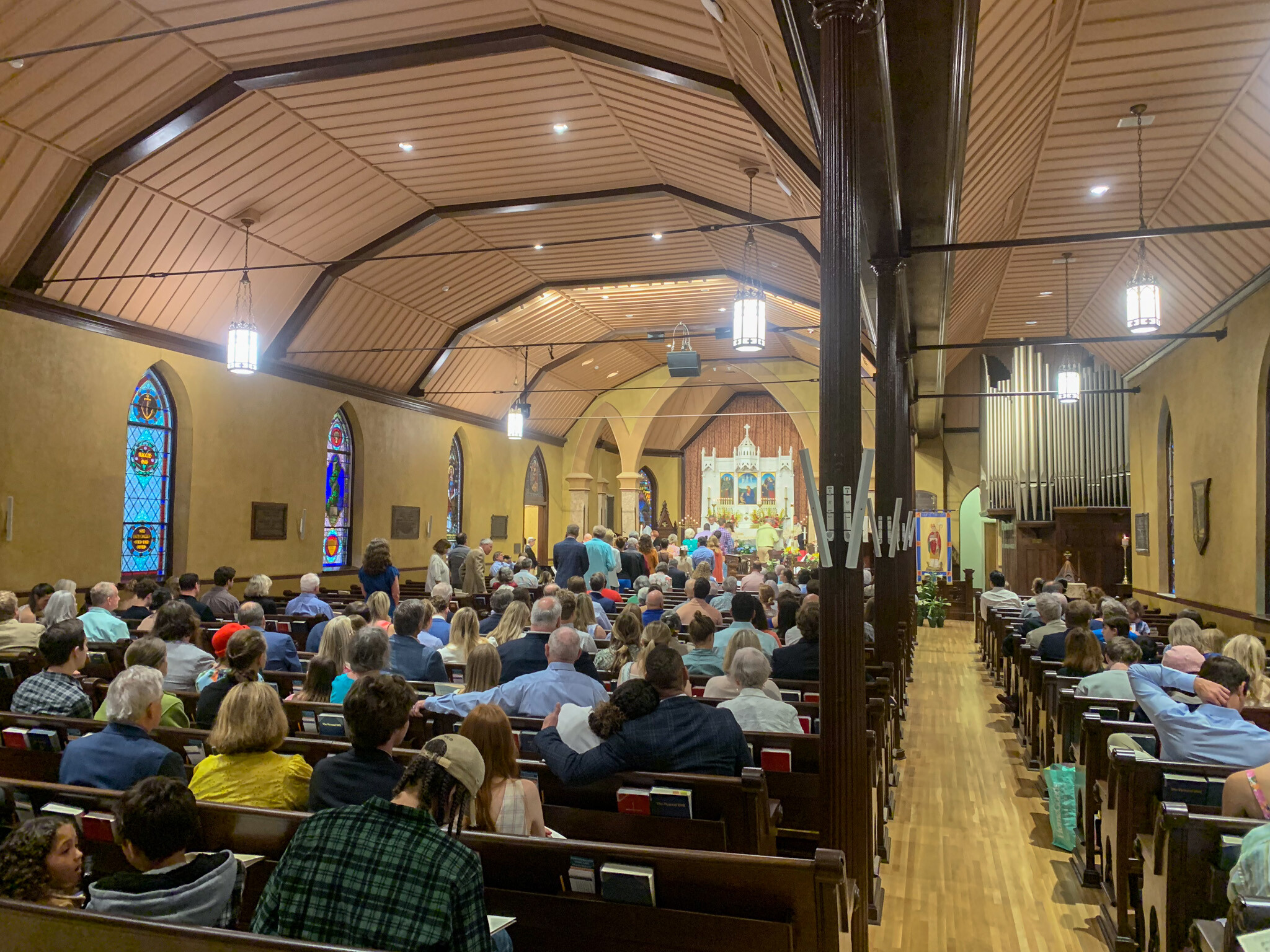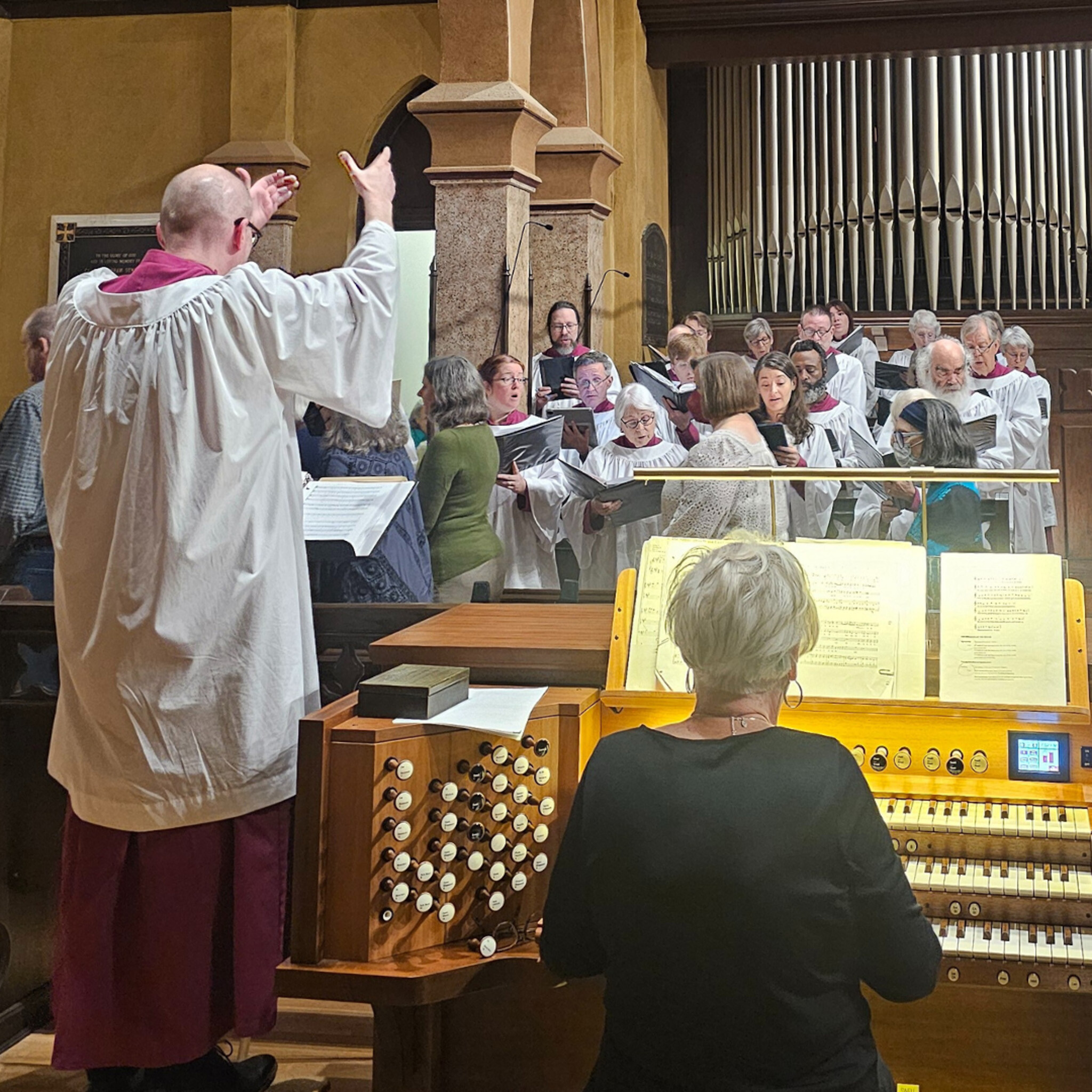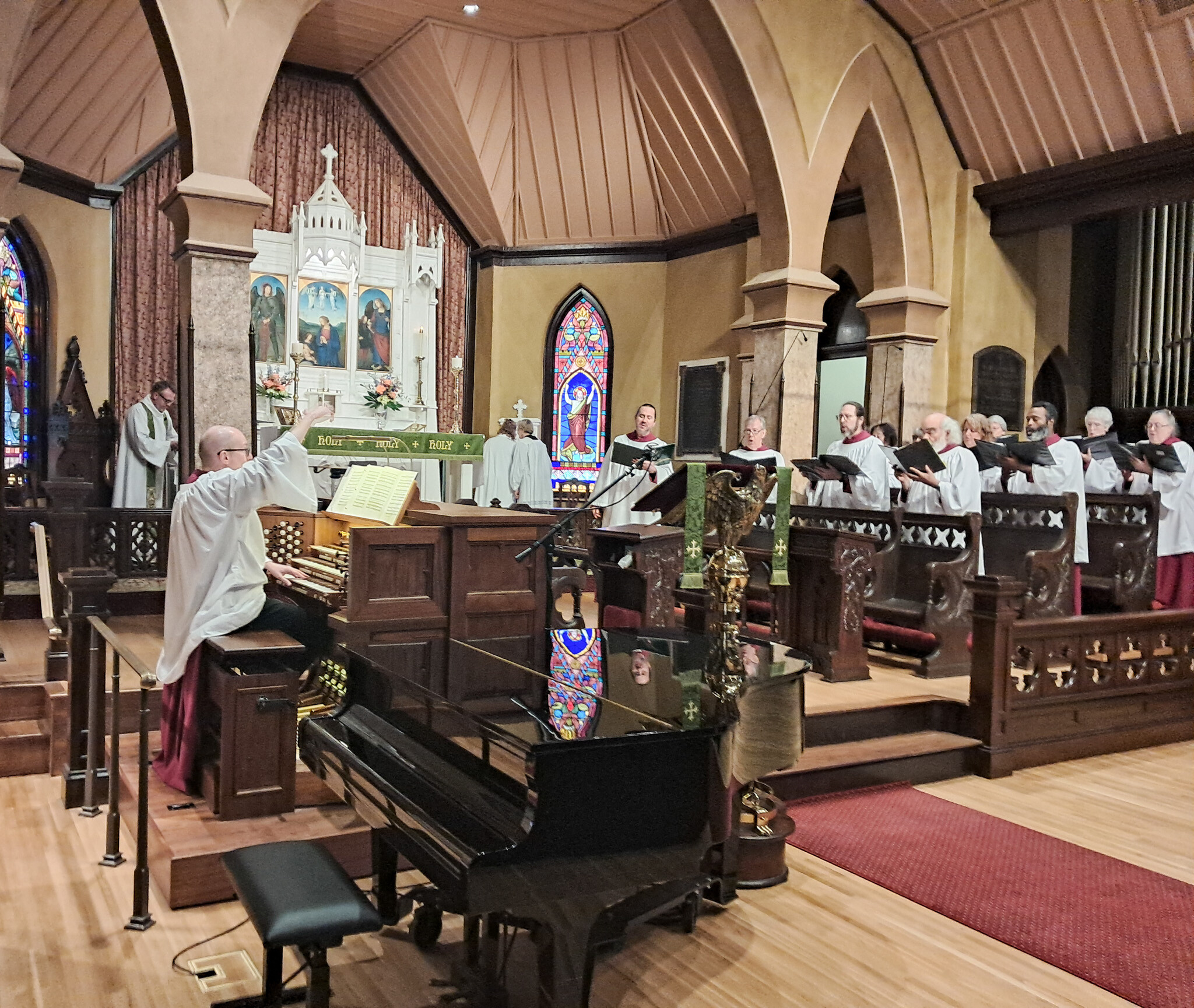
Two spirituals and two 17th-century German hymns to be sung this week suggest the breadth of traditions represented in the Hymnal.
‘Sing praise to God who reigns above’ [408] is one of two Hymnal versions of ‘Sei Lob’ und Ehr dem höchsten Gut’, a song of praise by Johann Jakob Schütz, a German Pietist, published in 1675 (the other is found at Hymn 375). The translation at 408 was made by Frances Elizabeth Cox, a 19th-century English translator of German hymns (see Hymns 194/195 and 286 for other examples of her work). The text is set to a bouyant melody of, or related to one of, folk origin and also similar to a tune used in the Genevan (Calvinist) Psalter; the present version is taken from the 1566 hymnal of the Bohemian Brethren.
‘All my hope on God is founded’ [665] represents a confluence of an author, a translator/paraphraser, and a composer all of some note. ‘Meine Hoffnung stehet feste’ is one of two hymns in the Hymnal whose originals were written by Joachim Neander, a German Reformed (i.e. Calvinist) pastor, teacher, and hymnist (the other being ‘Lobe den Herren’, or ‘Praise to the Lord, the Almighty’ [390]). It was published in 1679 and intended as a grace after meals. Robert Bridges, a physician, Poet Laureate of the UK 1913–1930, and a translator, promoter, and publisher of hymns, paraphrased Neander’s text for his 1899 Yattendon Hymnal, the immediate precursor to the important English Hymnal of 1906. The present tune was written around 1930 for this text by Herbert Howells, an important English composer of the 20th century now especially known for his church music. The text, occasionally obscure (as is not unusual for Bridges) but an always welcome reminder of human frailty and God’s providence, is given a good deal of thrust by the broad and somewhat irregularly phrased tune, which in turn is accompanied by some slightly unexpected harmony that still sounds fresh nearly a hundred years later.
‘Let us break bread together on our knees’ [325] is in many ways a typical spiritual, but it is unusual in its Eucharistic subject, suggesting that it developed among Black Episcopalians rather than in another ecclesial tradition. ‘In Christ there is no East or West’ [529] was written around 1908 by William Arthur Dunkerley, an English journalist, novelist, and poet (for his writing in the latter two genres he used the pen-name John Oxenham). Inspired by various passages in the Epistles regarding the removal of divisions effected by Christ and bestowed in baptism, including this week’s portion from the Epistle to the Colossians, it celebrates the essential unity of all Christians of whatever origin. The tune to which this text is set, ‘McKee’, is often called a Black spiritual; as such, it, like many other spirituals, was made popular in the late 19th century by the Jubilee Singers of Fisk University (a historically Black university in Nashville). The Irish composer Charles V. Stanford identified the melody as an Irish tune which could easily have been brought to the US by Irish immigrants and just as easily have been heard, learned, and sung by others. Such an origin would by no means disqualify it from being a ‘Black spiritual’ and indeed would embody the spirit of the present text, for which it was adapted by Harry T. Burleigh, a prominent Black singer, composer, and arranger of the first half of the 20th century. This pairing of text and tune made its first appearance in a hymnal in the 1940 edition of the Hymnal of the Episcopal Church.





Login To Leave Comment